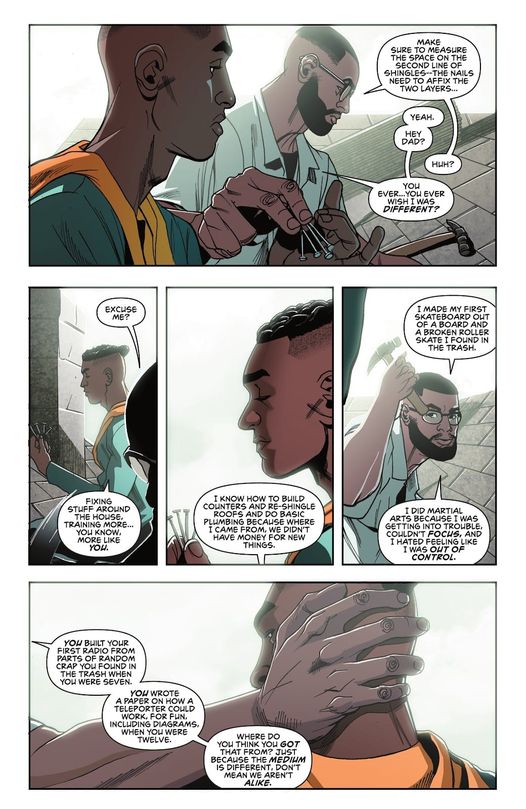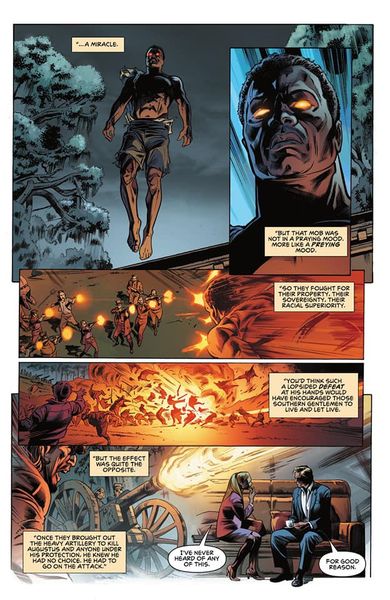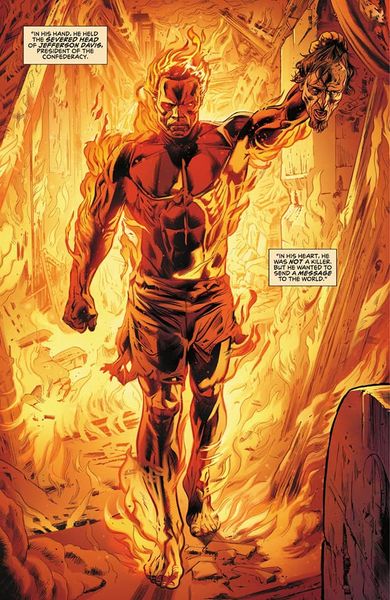The Miami University Film Festival will feature the release of Miami alumnus and Boadway Scholar-in-Residence Wil Haygood’s new book.
The Freedom Summer of ‘64 Award ceremony will coincide with the official release of Broadway Scholar-in-Residence Wil Haygood’s latest book, Colorization: One Hundred Years of Black Films in a White World.
“Reginald Hudlin’s illustrious and sweeping cinematic career, which encompasses a wide range of diverse filmmaking with a social conscience, makes him a wonderful choice to receive the Freedom Summer Award,” said Haygood (Miami ‘76), author of Showdown: Thurgood Marshall and the Supreme Court Nomination that Changed America (2015).
“Hollywood is a better place because of his monumental contributions when it comes to equality and representation,” Haygood said.
Hudlin grew up enjoying movies like “Animal House” and “Risky Business.” These inspired him to draw from his own real-life experiences. Hudlin’s father, Warrington Hudlin, was the owner of an insurance agency, and his mother, Helen, was a special education teacher. They raised their family in East St. Louis, Illinois, where poor economic misfortunes lived alongside rich cultural opportunities.
A major influence in his life was the 1960s dancer and choreographer Katherine Dunham, whose youth programs served as the catalyst that led Hudlin to Harvard, where he graduated magna cum laude. His senior thesis was a 20-minute short film called “House Party,” depicting the experience he lived as a Black student.
He also cherished the late Stan Lee, creator of the Marvel comic books. In the superheroes that Lee created — real people with human flaws — Hudlin could relate. Lee and Jack Kirby’s Black Panther character was originally introduced to audiences in the 1966 comic books. Hudlin was asked to head up a relaunch of the character, writing the comic book series from 2005-2008. He received critical acclaim for his well-rounded portrayal of a Black superhero.
“Stan Lee introduced psychology and flaws into superheroes, which made them more relatable and interesting,” said Hudlin, who bases his character development on this premise.
When working on his latest movie “Marshall,” Hudlin tells the story behind one of Marshall’s earlier cases as an attorney, but with a nod to true character.
“I wanted to take Marshall off of the pedestal we place him on and show him as the hard-drinking, smack-talking guy he really was, even though he was always the smartest guy in the room no matter what room he was in,” Hudlin said. “It makes him more relatable so people can see that his kind of success can be attainable.”
No matter the genre, Hudlin’s superhero-like drive to bring the Black image to audiences epitomizes the spirit of Miami’s Freedom of ‘64 Award.
Comment
+ Permalink
Static Season One #3: Black Fathers Matter
Virgil is experiencing a multitude of bio-psychosocial changes, as a result there of he finds himself seeking guidance and who does he turn to? His father, there’s a brilliant simplicity to this interaction between father and son; in that we see a Black man who’s present for his son in a time of need. An image which is often obscure and rarely promulgated, by that very fact it is a radical image.
This is a poignantly indelible image, one I can relate to as my father is my best friend and he consistently instilled wisdom in me through conversations akin to this one. We need more imagery that counteracts the absent Black father as a fixture of the Black experience, as all of our father’s aren’t negligent and absent. This scene provoked a range of happiness, pride, and gratitude for a positive image of a Black father and son with a close kinship. Milestone Media LLC I’m loving the imagery and Vita Ayala did an awesome job writing it.
Icon Season One #2 Augustus Freeman Liberates Black Folk From Slavery
In this second issue Hudlin takes on a polarizing issue of chattel slavery in a flashback, which is the inception of Icon’s a.k.a. Augustus Freeman’s entrance into history. A situation which contends with the idea of a Black person with the ability to jettison slavery, and stifle it’s debilitating grasp on Black existence.
To see Icon take an authoritative stance which personified the notion “none of us are free until all of us are free”, was an action which underlined the importance of community and collectivism. Icon in a very Afrocentric manner, repudiated the eurocentric notion of of “individualism” and wasn’t content with freeing himself but freed his people as well. This is a salient ethno socio-racial political message, that echoes the importance of the Swahili term “Ujima”; which represents collective consciousness. Icon typified freedom as his people being free, a message we should uphold as a principle.
Icon reflected the radically resolute audacity of the likes of Nat Turner, Toussaint Louverture, & Gabriel Prosser who are real life historical figures who lead revolts to subvert slavery. I loved the image of Augustus engulfed by flames while holding the head of real life confederacy president Jefferson Davis; that is a revolutionary image which modern day Black superheroes aren’t shown doing.
Below are a list African American Slavery rebellions to be aware of:
https://www.pbs.org/…/did-african-american-slaves-rebel/
Comment
+ Permalink
I love musicals. Not all of them, but here’s a list of ten of my favorites, in rough chronological order.
SINGING IN THE RAIN
There’s a reason why this is considered the masterpiece of the golden age of musicals. Some of the greatest artists in front and behind the camera came together at the peak of their powers and made a movie that stands the test of time.
AN AMERICAN IN PARIS
This is Gene Kelly’s run up to SINGING IN THE RAIN; in Prince terms, it’s 1999 right before Purple Rain. Also brilliant.
BLACK ORPHEUS
One of the greatest musicals ever made, one of the greatest movies in the history of Black Cinema, one of the greatest expressions of Black culture ever put on screen.
JESUS CHRIST SUPERSTAR
Between IN THE HEAT OF THE NIGHT, ROLLERBALL and JESUS CHRIST SUPERSTAR, director Norman Jewison had one of the most diverse and brilliant bodies of work in the modern film era. And the material itself is not only great musically but taught me more about Jesus than years of Catholic school.
ALL THAT JAZZ
Bob Fosse’s masterwork, an innovative, stylish film that pushed the musical into the modern day.
TOMMY
This opera is the movie that made me want to make movies. An underrated inspiration for the modern music video.
PURPLE RAIN
What a great, great movie. Like Enter the Dragon, it perfectly succeeds at its goal. A perfect showcase for a superstar.
MOULIN ROUGE
Baz Luhrmann’s trilogy of musicals climaxes with the brilliant summation of his reinvention of the genre. When I first heard his mix of Nirvana and LaBelle, I got choked up. Finally, a musical that embraces my wide tastes.
LA LA LAND
This movie had me right from the opening number. Grounded, relevant to today but at the same time it can break into song and dance and stand tall next to the classics.
HAMILTON
Hamilton is one of the greatest works of art of the century.
Comment
+ Permalink
Three movies directed by Reginald Hudlin are streaming on Netflix this September:
HOUSE PARTY
The original stands the test of time!
MARSHALL
Great performances by Sterling K. Brown, Josh Gad, Kate Hudson and the late great Chadwick Boseman!
and THE BLACK GODFATHER.
The true story of the Master of the Game!
Two movies produced by Reginald are also on Netflix.
DJANGO UNCHAINED
Oscar winning work all around!
and BURNING SANDS
Look at how many of your favorites are all in this cast!
So have a Hudlin screening marathon starting in September on Netflix!
Comment
+ Permalink




